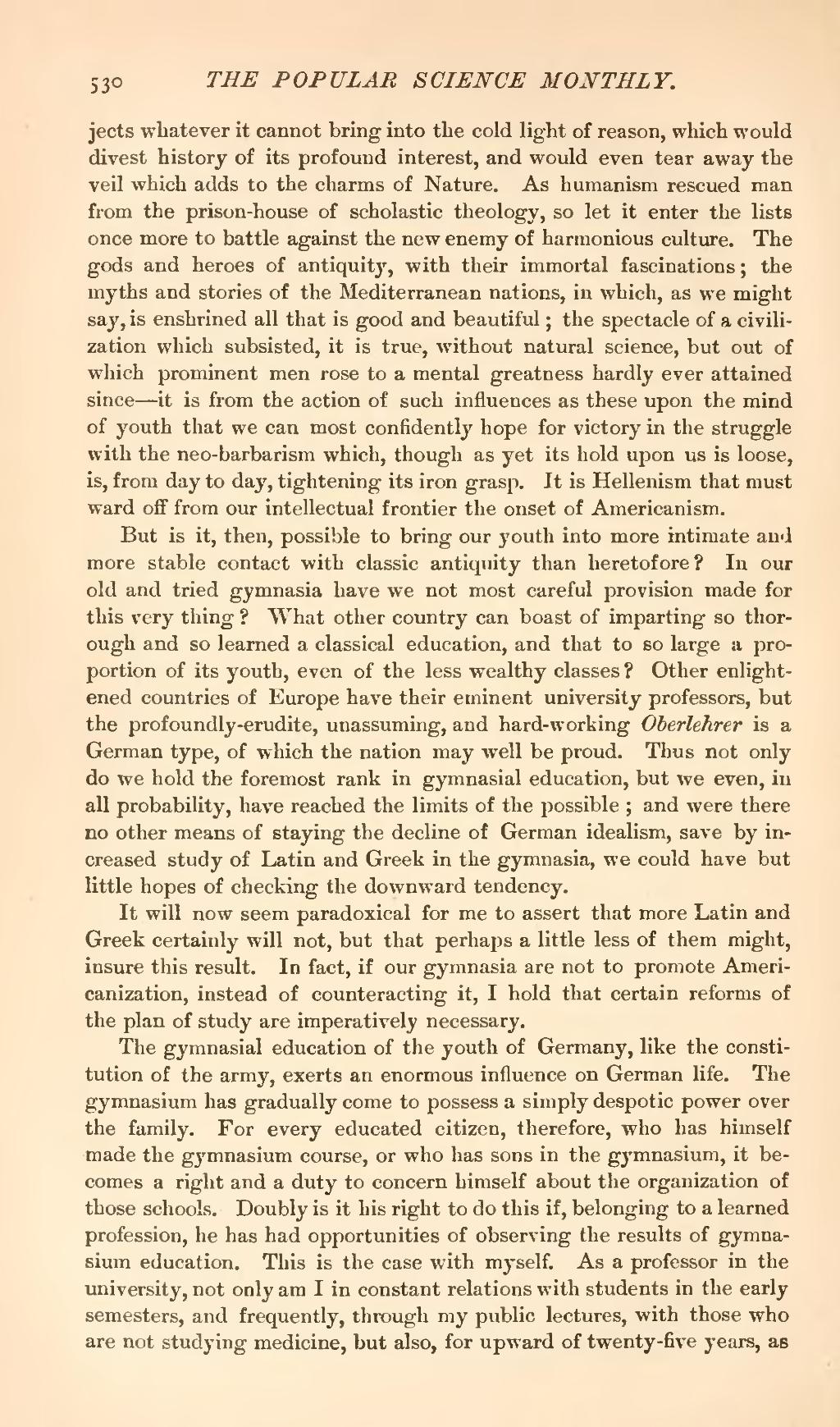jects whatever it cannot bring into the cold light of reason, which would divest history of its profound interest, and would even tear away the veil which adds to the charms of Nature. As humanism rescued man from the prison-house of scholastic theology, so let it enter the lists once more to battle against the new enemy of harmonious culture. The gods and heroes of antiquity, with their immortal fascinations; the myths and stories of the Mediterranean nations, in which, as we might say, is enshrined all that is good and beautiful; the spectacle of a civilization which subsisted, it is true, without natural science, but out of which prominent men rose to a mental greatness hardly ever attained since—it is from the action of such influences as these upon the mind of youth that we can most confidently hope for victory in the struggle with the neo-barbarism which, though as yet its hold upon us is loose, is, from day to day, tightening its iron grasp. It is Hellenism that must ward off from our intellectual frontier the onset of Americanism.
But is it, then, possible to bring our youth into more intimate and more stable contact with classic antiquity than heretofore? In our old and tried gymnasia have we not most careful provision made for this very thing? What other country can boast of imparting so thorough and so learned a classical education, and that to so large a proportion of its youth, even of the less wealthy classes? Other enlightened countries of Europe have their eminent university professors, but the profoundly-erudite, unassuming, and hard-working Oberlehrer is a German type, of which the nation may well be proud. Thus not only do we hold the foremost rank in gymnasial education, but we even, in all probability, have reached the limits of the possible; and were there no other means of staying the decline of German idealism, save by increased study of Latin and Greek in the gymnasia, we could have but little hopes of checking the downward tendency.
It will now seem paradoxical for me to assert that more Latin and Greek certainly will not, but that perhaps a little less of them might, insure this result. In fact, if our gymnasia are not to promote Americanization, instead of counteracting it, I hold that certain reforms of the plan of study are imperatively necessary.
The gymnasial education of the youth of Germany, like the constitution of the army, exerts an enormous influence on German life. The gymnasium has gradually come to possess a simply despotic power over the family. For every educated citizen, therefore, who has himself made the gymnasium course, or who has sons in the gymnasium, it becomes a right and a duty to concern himself about the organization of those schools. Doubly is it his right to do this if, belonging to a learned profession, he has had opportunities of observing the results of gymnasium education. This is the case with myself. As a professor in the university, not only am I in constant relations with students in the early semesters, and frequently, through my public lectures, with those who are not studying medicine, but also, for upward of twenty-five years, as

